The following is a chapter in “A Comprehensive Theory of EarthBound,” a series that aims to better understand the storytelling of Shigesato Itoi’s landmark video game. Find the full series here.
“It is a wise father that knows his own child.” [1]
In a decade that gave us a library of games about orphans, EarthBound reminded us how important fathers are to their sons.
In the 90s, strategically orphaned protagonists from Randi to Cloud Strife reflected the keen desire for escapism and independence present in so many a young gamer. This style of parentless avatar became a fresh archetype onto which the gamer could imprint their own personality: a character that could serve as a kind of second skin for the player.
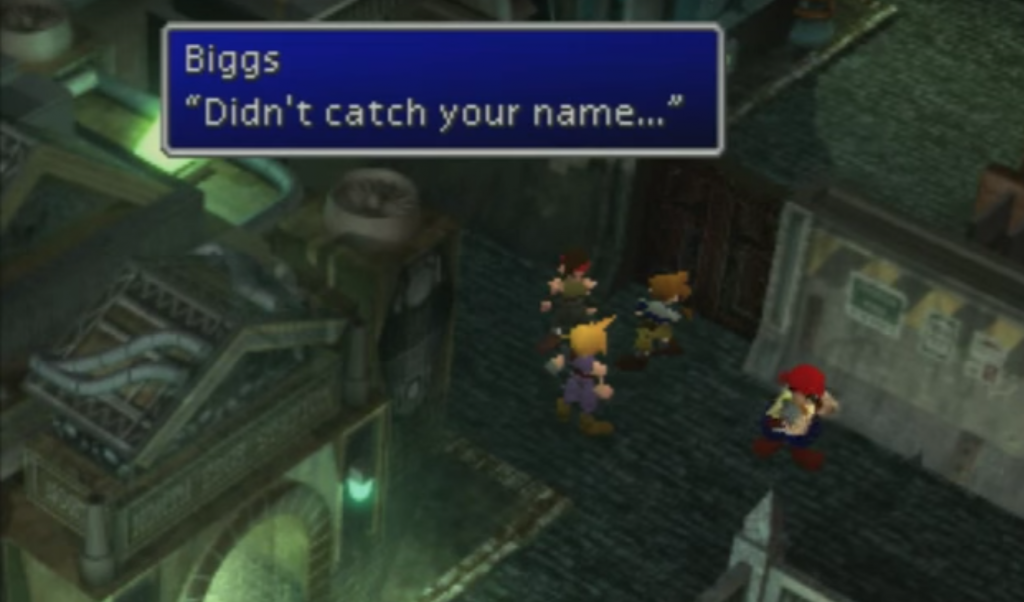
This archetype is one way in which RPGs have traditionally chosen to limit themselves, and tidy their narratives. If we do not know a character’s family we cannot truly know their history, lessening our means—though not necessarily our desire—to find out why they are as they are, and why they do as they do.
And yet, completely contrary to this trope, EarthBound delved more deeply into family themes and the tropes of parenthood than almost any other game. This was, after all, the second installment in a series called Mother. While the protagonists of EarthBound are not afforded nearly as much expressive room in the game’s script as the supporting cast, the approximation of close-knit society in EarthBound—with the family as its nucleus—means that in many ways Ness, Jeff, Paula, and Poo are afforded greater means to be individuals than many of their fellows and forebears.
In a way not necessarily true even of RPG mainstays such as Link, the protagonists of EarthBound are as much themselves as they are avatars of their gamer.
Fathers, Sons, and Duty
As they do through mine and through any other proper and upright Englishman’s, the words of Shakespeare flowed like sweet sap through the veins of the great actor Peter O’Toole. He characterized the Bard’s Hamlet as primarily a tale of three sons: Laertes, Hamlet, and Fortinbras. All of them are the wards and heirs of murdered fathers, all tasked with revenging them—
HOLD IT.
Now I’m not about to earnestly compare the work of Itoi, as localized by Marcus Lindblom, to the works of Shakespeare.

The most general Shakespearean connection to EarthBound is that it is, like all of Shakespeare, a study in the passions; in fact, we might infer from the emotional chaos of the work’s conclusion, and the way peace is brought about itself by peace (the passive, yielding ‘Pray’ command), that EarthBound is ultimately an argument against the passions. But the most intimate tie shared between Hamlet and EarthBound is that they are both the tale of three sons and three fathers. In EarthBound’s case, these are:
- Ness and his father, unnamed


- Jeff and his father, Dr. Andonuts


- Pokey and his father, Aloysius


In EarthBound, going generally unnoticed among its various other remarkable features, is a lattice of father-son relationships that yield fascinating insights as to the nature of duty: both the duty of the avatar, and the duty of the gamer. The relation to the parent is the child’s foremost compass to the notions of obligation and duty; in the case of Ness, Jeff, and Pokey, their fathers are, to some degree, why they do what they do.
Not only do we learn more about the ‘why’s and ‘how’s of EarthBound’s sons than we are generally permitted in similar games, but are also invited thus, through video gaming’s unique ontological cues, to consider the correlation of our avatars’ duties with our duty as players.
Ness and his Father: Charity and Absence
Paradoxically, much of EarthBound’s story is spurred by a character we never directly encounter: Ness’ father. Of course, Ness’ father is the key to the gamer’s experience of EarthBound; it is he who saves the player’s progress and furnishes them with dough to buy donuts and weapons upgrades.
But Ness’ absent dad amounts to much more than just a clever way of imbuing rationale and personality into an unavoidable technological trope of gaming.
The notion of the absent patriarch has been with us at least since Homer wrote his Odyssey. Ness’ father is a Ulyssean figure in his absence, but he can be seen to play faithfully to that archetype in other ways; like Ulysses, Ness’ father is bold, acquisitive, and full of guile, to the point of exhibiting real dishonesty. While we might be tempted to read Ness Sr.’s conning of Aloysius Minch as a sly and deserved punishment-in-advance for a venal and abusive man, it is dangerous and hypocritical to bask too much in Ness Sr.’s cunning enterprise.
We spoke in this series’ prior installment of how close Ness can often find himself to evildoers, in association and occasionally in deed; it is somewhat appropriate, therefore, that it is Ness’ father who brings Ness furthest into the grotto of moral compromise. Yes, Ness’s dad provides him with money that funds his quest, the dough that saves us all—but it’s implied that this money was embezzled from his nemesis’ father. Ness is set out to us as a paragon of innocence, not even able to utter a word that might cause him to fall from absolute grace; but the foundation on which he rests and quests may be corrupt.
For it is Ness’ father’s debtorism that seriously inflamed the relationship between Pokey Minch and his father: having been fleeced by Ness Sr., Aloysius exorcises his rage by abusing his sons. Ness’ father cannot be said to be directly responsible for the misery of the Minch children. And yet, the entire thrust of the prior article in our series was that neglect and passive enabling of evil, of which Ness Sr. is certainly guilty, is very much its own sin—therefore, Ness Sr.’s indirect responsibility for their misery still makes him blameworthy.
Ness’ father is kind to his own son, eminently provident, and affords him a precisely balanced sum of independence and fatherly restraint; he is interested and, in all senses, invested in his lad. To satisfy such a noble goal, surely any corner-cutting or trickery qualifies as worthy collateral, no matter the cost?

Well, the unstated “cost” for these gifts is that Ness Sr. exacts something on his son, making his son heir to his dad’s misdeeds. Think of the eventual standing of Pokey relative to Ness in EarthBound’s story, and think of Ness’ father; we realize that, to some degree, Ness Sr. has enabled both his son and his son’s mortal enemy. Looked at it from this vantage, EarthBound becomes in some senses a story of Ness against Ness Sr.-the-man, as funded, enabled and compelled by Ness Sr.-the-father.
The complexity of Ness’ relationship to his father also elevates the profundity of his quest to a different plane: Ness suddenly attains the appearance of a kind of redemptor, he who must right the wrongs that he inherited. This is a notion given credibility by the suffering of Pokey, Ness’ father’s proxy role in it, and where Pokey eventually ends up: in that awful regressive state, a “womb” of evil. Though we would be remiss to lay responsibility for the whole thing at Ness’ father’s door – and even more so to, by extension, lay it at Ness’ own door – an understanding of Ness’ father’s multitudes, and what they exact of the lesser Ness, is essential to understanding EarthBound’s conception of the human condition and the idea of duty.
It is a similar situation to that in which Hamlet finds himself relative to his own absent father; and indeed, EarthBound bears further resemblance to the Bard’s most storied and studied work in terms of its treatment of duty as an ethical, perhaps ontological phenomenon wholly distinct from “real life”: it suggests that duty requires one not merely act differently, but also to be differently.
Hamlet, of an essentially harmless and ironical moral disposition, is fundamentally unprepared for the duty of heir apparent, where killing can be excused under the bearing of certain obligations. He forced from the minor obligations of youth, into entertainment of the mortal duties of a king. If Ness’ father is Ulysses, then Ness himself must play Ulysses’ son, Telemachus – ‘Telemachus’ translating to ‘away from the battle’, a state of being mirrored in Ness’ abstracted and non-tactile powers of Psi, and his station as a child, fundamentally unfit to take on the battling duties of his own nation.

And yet, like Hamlet, Ness finds himself thrust into a position of “greatness” that he is obliged to attain. The only guide either lad has is the conflicting examples and exhortations of their dear ol’ dads. Hamlet’s father compels Hamlet to his duty, which goes against Hamlet’s nature, while, inversely, Ness’ father compels him to do as he says, not as he does.
Ness’ relationship to his father seems as sunny as can be; but the sun invites its shade, and significant elements of the father-son dynamic between Ness and Ness Sr. can be espied reposing in its tenebrism.
While Ness’ father embraces his duties, dispensing resources both abstract and palpable to his son, his relationship with Ness is very much in the mold of father-son relationships in individualistic cultures: it may be paternal at its best, but it is not paternalistic. The defining factor of Ness’ relationship to his parents is not summed up by their interactions, but rather by the fact of his quest, his distance: he is allowed to roam free, and to self-actualize far beyond the safe bounds of home. The non-paternalistic relationship of allowance, as opposed to obligation, is also what defines the gamer’s relationship to both the wider conception of the ‘game’, and to their avatar.
In gaming we are not, as in other mediums of storytelling, obliged to necessarily accept the work on its own terms. If we do not find ourselves enthralled by a game, we are at constant liberty to not merely remove ourselves from its context, but to deactivate it. We may stash a painting, or stop playing or listening to a piece of music, but it is never so easy to mute the essence of a piece of art, to mute it to the world, as it is when gaming. We are free as a gamer as Ness is free as a son, if not as a hero: we may range (metaphysically) as far from home as we like, doing as we do, not because we have to, but rather because we are convinced what we are doing is worth doing. Our paternal figures—Ness, his actual father; the gamer, their console—will provide what is necessary.

Or so it is for some. Other sons, on the other hand, provide what is necessary to their fathers.
Jeff and His Father: Fear and Absence
Perhaps the saddest moment in all of EarthBound is the scene of a reunion between one father and one son, a scene that lasts approximately 44 seconds of real time. The father and the son have not seen one another in ten years, despite the son having been ensconced during that time in a boarding school that is only a Loch Ness Monster ride away from the father’s laboratory.
Their meeting and dialogue hold no measure of catharsis: they are merely a thoroughfare for exposition, a way to get the son’s character from A to B. The father cack-handedly and self-centeredly offers his son hospitality in the form of a donut: “How about a donut? Yes? Well…I was only offering, I would also like a donut right about now.” The father then goes on to enthuse lovingly about his latest science project, then barely takes care to send his son on his way. “By the way,” he asks, “why are you here?”
When he first sees his boy, the father does not recognize him.
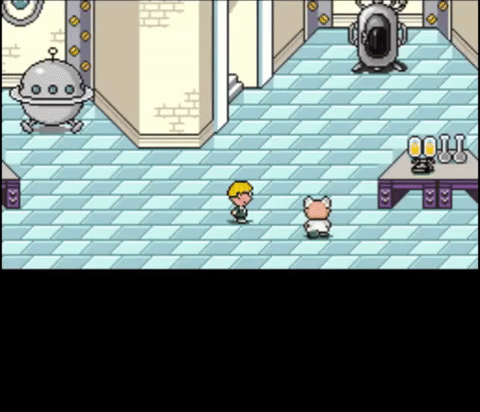
If Ness and Pokey are the Hamlet and Laertes of EarthBound, then Jeff is its Fortinbras: not quite so much at the very heart of proceedings, but nevertheless a beam of light that penetrates deeper into the heart of the real heroic constitution, much more directly illustrative of the makeup of duty. As Fortinbras Senior is the most fundamentally absent of all meaningful characters in Hamlet, so is Dr. Andonuts a figure of almost complete absence to Jeff, the son more substantially in his father’s image than any comparable figure in EarthBound.
It appears that EarthBound wishes for us to see that the four main party members are not “chosen” owing to their unique power or natural battle-readiness, but rather because they are so preternaturally good-natured. Jeff is diffident, shy, and self-deprecating in a way that does not passively suggest confidence; he works obsessively through the night on mechanical projects, both in emulation of his father’s prevailing passion—the one that replaced him—and in the inexhaustible drive for validation native to the neglected kid. Like Ness, Paula, and Poo, Jeff is extraordinarily brave, active, self-sacrificing, and willing to invest his trust in others based on little but a powerful intuition of others’ character.
In terms of how seriously EarthBound takes virtues like these, take care to note that there are plenty of characters in the game’s universe that do not demonstrate any one of these virtues, let alone a concert of several or all of them, as Jeff and his companions do.
We are able to recognize that Jeff’s ongoing equanimity and cheery will to progress is waged in the face of his own childhood difficulties. This is one of EarthBound’s most extraordinary feats of characterization, developed to an incredibly delicate state of believability.
 Jeff is EarthBound’s most morally instructive son because of how fully he utilizes his birthright—an aptitude and passion for technology—in the service of a far more open-hearted. and less abstracted, service than his father has done.
Jeff is EarthBound’s most morally instructive son because of how fully he utilizes his birthright—an aptitude and passion for technology—in the service of a far more open-hearted. and less abstracted, service than his father has done.
The similarities between Jeff and his dad are legion, both overt and subtle. There are elements of the doctor’s emotional distance in Jeff’s behavior at times—the way he unwittingly burnishes Tony’s ambiguous ardor for him with his lack of demonstration or engagement, for instance. Likewise, Dr. Andonuts showcases flashes the same anguished need of searching as Jeff does—the way the doctor recruits the Cave Boy to be his assistant, the Cave Boy representing the same disfidelious[2] and uncomplicated inferior companionship one receives from a child of two, which is presumably the last age at which the doctor had Jeff in his full-time care. They match in appearance, gifts, and interior yearnings.
And yet, only one of the two manfully answers his call to duty, and it is the son, Jeff. All this without him having known a male role model who could have demonstrated such virtue to him. Of all the sons in EarthBound, it is Jeff who most exploits what his father made him heir to—both in his genius and in his fraught, compensatory work habits—for the greater good, and from a position of some disadvantage too. After all, at the age of the ten Jeff stills “wets his bed”; it is obvious that he still suffers. But he is a “good kid”; those are the words of Dr. Andonuts himself. If this notably oblivious man can see it, and understand it, then we, the gamer, must be able to see it too.
Indeed, so instructional is Jeff the son that Dr. Andonuts, nothing if not a scholar, begins to learn from his progeny and follow in his image. As Jeff purposes his gifts to fighting the good fight, so is the doctor shaken from his stupor of pure, isolated theoretical pursuit, and awoken to the value of cooperation in the war against Giygas. In the saga of Jeff and Dr. Andonuts, we see not the story of the father’s example, but of the son’s, just as with Fortinbras in Hamlet we see a manful young king compelled, if neurotically, only by his own principles and intuition, in no need of the advice or decree of elders so absent they might as well be ghosts.
But not all sons of absent fathers are so good.
Pokey and His Father: Absence
Poor, young Pokey.
In some respects, Pokey and his father are so alike that, but for their age, they would be indistinguishable. As this article’s nominated Laertes, Pokey is a young boy tangled in a whole web of incident, victimized fundamentally by an unending chain of quixotic mishaps and deeply misguided decision-making. In an abstract and particular way, he “loses” his father as Ness and Jeff do; and, like Laertes, Pokey chooses ill-fatedly to make an enemy of his antithesis, Ness, and to forego reason for the sake of passion.
EarthBound is a game that delights in the intangible goods it can mine out of our frustration, dropping us in eminently unrewarding-feeling positions just so it can teach us our lesson well. From Pokey’s obsequious manner, to his cowardice, to the way he just keeps showing up, EarthBound invites us to feel disgusted for this rotund latchkey kid, while simultaneously raising the baton of reproach high so that it can swing it down and scold us for not making the effort to comprehend the reasons that motivate his behavior that would disgust us.
As we noted in the prior article, a slothful approach to understanding evil and its many forms is one of evil’s surest routes to prosperity.
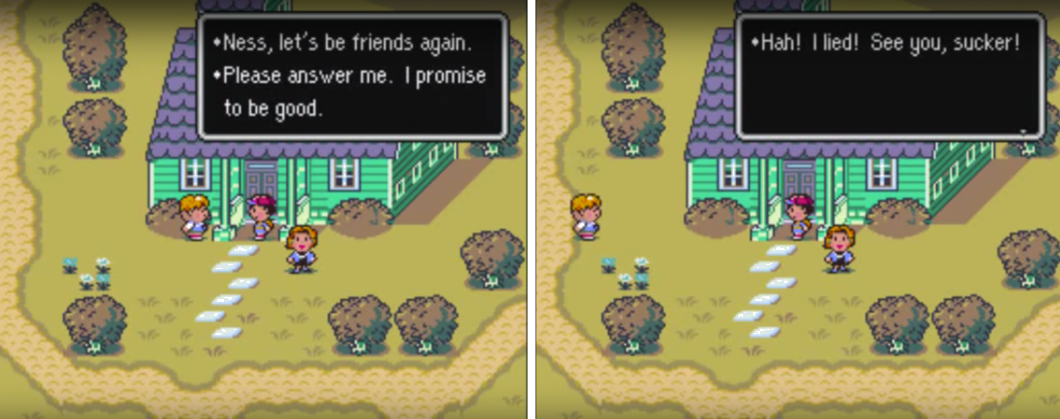
Given Pokey’s immediacy to his father, and our present obsession with the father-son union/divide, what of him and Aloysius? Well, Pokey does not seek revenge for his father, but rather refuge from and vengeance on him. We see him at the game’s end taking refuge in the womb of the Devil Machine, beset by images of the boy whom he most loathes and most desires to be, Ness; Ness, whose father’s debts no doubt inflamed the temper of Pokey’s father, who then visited more violence and scorn upon his own poor son. It is virtually impossible not to see Pokey’s nature as a risible consequence of the awful household he grew up in, his rage an unquenchable thirst to revisit the abuse he received from his dad back upon him, and thereafter upon the whole world.
Of course, such is the manner by which childhood abuse can tear at the psyche, Pokey does still want to avenge his father’s lost financial honor, ceded to Ness’ father’s trickery. However much Pokey might hate his father, there is more direct evidence in EarthBound that, like any injured or spurned child, Pokey still desires his father’s approval:
- He adopts the same brutality fortified by bourgeois obsequiousness as his father.
- He dresses as his father does and works as he works in Fourside.
- He wages a similar warpath against Ness as Aloysius does against Ness’ father.
From what Aloysius tells us, Pokey is far more successful than his father, more suited of the two of them by (twisted) nature to the dog-eat-dog world of Fourside; it is almost certain that, like Ness, and in his own way, Pokey is a gifted child.
But they are two boys who chose opposite forks of an unenviable road. Despite hailing from neighboring households, through a mix of choice and the dictation of circumstance they tread equal and opposite paths. We see this not merely from our omniscient gamer’s vantage point, but also from the development of Pokey’s enmity towards the heroic Ness.
Ness, in being treated by his parents as a special child—as all children must be for a certain measure of basic health to find them—irritates with his very being Pokey’s despairing sense of his own worthlessness, as exhibited in his every venture throughout EarthBound, shying from conflict when he is not attempting to stir it up for others. Thus, he and Ness are one another’s natural opposites: to Pokey it is Ness, more than his own mother or father, who compels him in his course, fixating upon Ness and pining to be like him, as exhibited in those final moments in the Devil’s Machine. And why wouldn’t he? Ness, with his close relationship to his parents, is everything Pokey could wish to be.
The results are an emotional imbalance alluded to comically during Pokey’s short spell as a party member, and direly during his appearance during the game’s great finale.

You may notice Aloysius’ own relative absence in this consideration of Pokey’s relationship with him, how little of a direct and deliberate effect he has on his boy; that is the point, and the tragedy of it all.
Indeed, the story of Pokey and Aloysius is EarthBound’s greatest tragedy, an incessant tale of the feelings of inadequacy that define one kid. Fulfilling the traditional role of the son, Pokey becomes Aloysius’ victim: looking to match his father for profession, and perhaps contend with him by his independence, Pokey finds not that there is another way to win his father’s affection, but rather that Aloysius simply had no affection to impart upon him or anyone in the first place.
We are not privy to much of what exactly happens when Pokey and Aloysius work in Fourside, but it seems that Pokey’s quest for approval has led him to a confrontation of the void. We can infer this not just from the way in which the two room apart from one another, but also from the way in which Pokey ultimately absconds from the place, caring no more for his father’s company—and, perhaps symbolically, crashing his escape craft in the Deep Darkness.
And the void, with its certain comforts, is what he thereafter begins to seek. Aloysius himself is left forlorn in Jackie’s Café, feeling not so bereft of his son’s company, but more of the “life of a rich man” that Pokey’s Fourside success made possible for him. Their relationship, even in ruins, does not give rise to yearnings or pinings from either of them; it is pure desolation, leaving no sentiment or affection. 
And therefore we can at times, playing EarthBound, empathize with Pokey as much as we do with Ness, if we choose to. The rejection Pokey feels as a son is at times how we feel as a gamer, beset by some of Itoi’s most maddening creations. Sometimes we may feel too that, after all the hardship, no more can possibly be worth it: that the “duty” we have notionally accepted is not worth bearing any longer, and that our game does not “love” us.
But there remains an insurmountable difference between the gamer and Pokey. We can opt out of our duty, for it is only the duty of fun. Pokey, in his narrative bounds, cannot opt out of the duty of a mistreated son.
Lessons from Dad
The fathers of EarthBound have much to teach their sons—some of them do impart a lesson or two, and some of them don’t. The absence, or at least distance, of each of those three fathers we have surveyed is instructive in itself about our own status as gamers: we are provided for, though we are expected to find out for ourselves what must be made of what was provided to us. We are given the tools, without necessarily being given instructions of how to use them. From this can potentially run the joyous springs of the gaming experience; from that non-paternalistic sense of allowing, rather than demanding, that the gamer appraises the game as a worthy venture.
So much art has taken on the matter of family, inheritance, and duty. We may find within EarthBound the artistic rendering of a particularly modern sensibility of family and of duty: that we may be dutiful only to that which we appraise as worthy. EarthBound treats fathers and fatherhood variously; the chummy, two-pals relationship that Ness and his father share would have been as unthinkable in the times of the revenge melodrama or peripatetic epic as the antipathetic, impudent non-bond that is shared between Pokey and Aloysius. Ness, Jeff, and Pokey’s coming-to-terms with their dads, and with the duties of their separate inheritances, resemble the player’s own towards the medium of their present enjoyment: their principal duty is of their own free will, led more by conscience than by example.
EarthBound is not remarkable in that it offers a treatment of duty; via the trope of the quest, RPGs generally gamify duty. However, the mixing of this common trope with EarthBound’s keen sense of family dynamics is what achieves the game’s unique resonance. In EarthBound, we are not merely placed in a position of godly omnipotence over a band of archetypes: rather, we are able to know what would drive our characters were they freed of their obligations as part of a game.
Once we see beyond the game-centric functions of Ness and his friends, we have an opportunity to assume the role of their innermost driving forces. Whereas in a given Zelda Link merely ‘lives’ to serve us, there exists the possibility of a greater dialogue between the gamer and their avatars in EarthBound—and a greater pathos for the intractable situation of Pokey, the only one of the three sons we cannot control, whose inner forces we cannot embody as we can for Ness and Jeff.
We may be affected by Ness and Jeff’s mutual decisions to pursue the right path—and be appalled and saddened by Pokey’s choice of the opposite decision—all the more because this is a duty that Ness and friends choose, as much as it is framed narratively as one the gamer chooses for them. The chaos and indifferent moral universe that Ness and co. live in help shore up this impression. And their choice mirrors our own: to accept the tread of gaming not because of its ease but because of its challenge; because a good, clean (or not-so-clean), fundamentally virtuous pursuit, a duty picked up for nothing but its own sake, is as true a joy as there is.
And perhaps something that might make our dads proud.
[1] The Merchant of Venice, Act II Scene 2.
[2] This word is to be understood relative to faith as ‘disinterested’ is related to interest: just as a disinterested individual operates without personal investment, the figure described as ‘disfidelious’ has no sense of faithfulness or unfaithfulness, and “does” or “is” without any particular predetermined feeling towards others.
Continue Reading
- A Comprehensive Theory of EarthBound series navigation: < “The Drawing Board: What is a ‘Comprehensive Theory’ of a Video Game?” | “The Music of EarthBound: The Chromatic Scale of Life” >


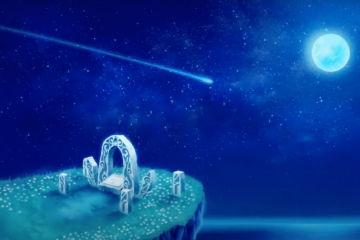
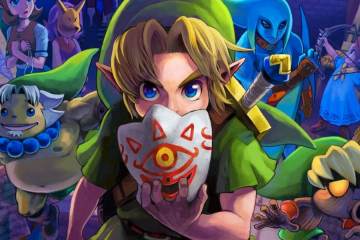
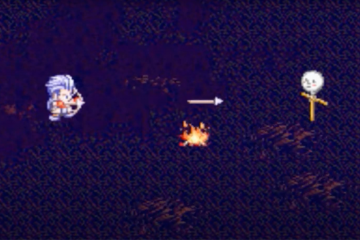
4 Comments
John Markham · June 5, 2018 at 12:22 am
This article was really well put together. I think I’ll have to check out Earthbound for myself sometime soon.
A-Ron · July 20, 2018 at 6:55 pm
Isn’t it more Porky who abandons his father? I noticed many of these same parallels that you did as I played this game, but what separates Porky, to me, is that he abandons his father.
Great article, though. It reminds me so much of the ‘Scylla and Charybdis’ section of Joyce’s Ulysses (the scene where Stephen discusses Shakespeare in the library). I always think about Joyce’s ideas of amor matris when I play the Mother games. They truly drive home the idea that “paternity may be a legal fiction.”
Keep up the great work. I look forward to reading more of your analyses. I’m an English teacher, so please don’t mind if I steal a few of your ideas in my classroom when I teach Hamlet. That theme of separated fathers goes back farther than The Odyssey. What is the Bible, if not the story of children being separated from their Father, and working to find His Grace again?
If you’re ever looking for a guest contributor, by the way, I have some pieces about Pac-Man and Donkey Kong that might be of interest to your project.
CRT worlds · August 24, 2020 at 7:19 pm
This is an incredibly deep, poignant at times, study of the family relationships in Earthbound. Thanks for the obvious time you put into this article! I look forward to reading your other thoughts on this game before replaying Earthbound again!
Daf · May 20, 2022 at 3:37 pm
Pokey and Aloysius are so consistently untrustworthy that I’m surprised this article just takes their claims about Ness’s father at face value. I never did.